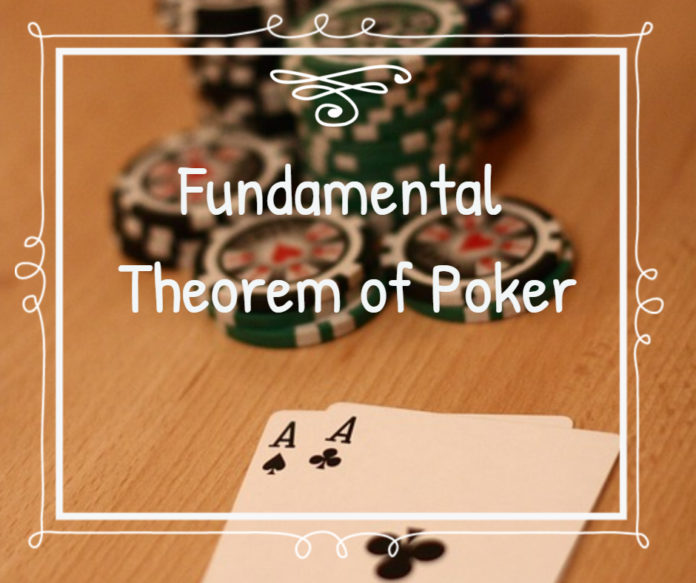The fundamental theorem of poker is a principle first articulated by David Sklansky that he believes expresses the essential nature of poker as a game of decision-making in the face of incomplete information.
“Every time you play a hand differently from the way you would have played it if you could see all your opponents’ cards, they gain; and every time you play your hand the same way you would have played it if you could see all their cards, they lose. Conversely, every time opponents play their hands differently from the way they would have if they could see all your cards, you gain; and every time they play their hands the same way they would have played if they could see all your cards, you lose.”
The fundamental theorem is stated in common language, but its formulation is based on mathematical reasoning. Each decision that is made in poker can be analyzed in terms of the expected value of the payoff of a decision. The correct decision to make in a given situation is the decision that has the largest expected value. If you could see all your opponents’ cards, you would always be able to calculate the correct decision with mathematical certainty. (This is certainly true heads-up but is not always true in multi-way pots.) The less you deviate from these correct decisions, the better your expected long-term results. This is the mathematical expression of the Fundamental Theorem.

















